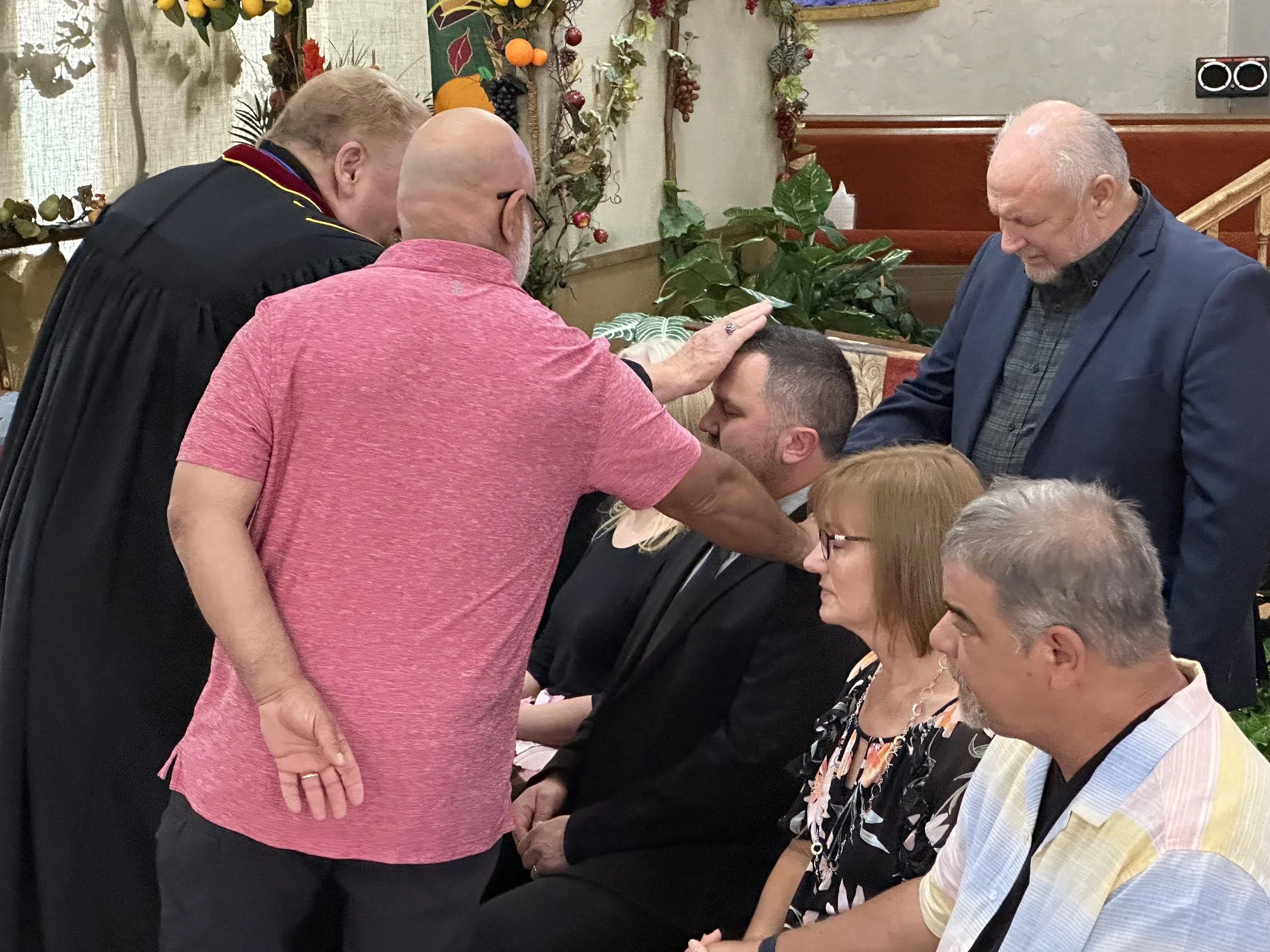
Ministerial Licensing & Ordination Procedures and Practics
Biblical Precedence and Practics for the Licensing and Ordination of Ministers
Biblical Foundations for Public Ministry: A Seven-Fold Witness
Both the First and New Covenants provide clear testimony to the divine calling of individuals into public and formal ministry. The fivefold gifts—apostles, prophets, evangelists, pastors, and teachers—are not innovations of the New Testament but are deeply rooted in the First Covenant, where they are foreshadowed through prophetic, priestly, and instructional roles within Israel’s communal life.
Likewise, the two degrees of ministry—deacons and bishops—find their antecedents in the Levitical and priestly orders. The Levites served in supportive and administrative capacities, while the priests bore responsibility for spiritual oversight and sacrificial mediation. These patterns anticipate the New Testament offices of diaconal service and episcopal governance.
Restoration Fellowship International affirms the full seven-fold New Testament ministry structure:
Five gifts: apostles, prophets, evangelists, pastors, and teachers
Two degrees: deacons and bishops
This framework is grounded in Scripture:
Titus 1:5–9 and 1 Timothy 3:1–12 outline qualifications for bishops and deacons
Ephesians 4:10–16 describes the fivefold gifts given by Messiah for the equipping of the saints
Psalm 68:18 prophetically anticipates Messiah’s ascension and the giving of gifts to His people
Ministry Terminology in the New Testament
The overarching terms used to describe ministry in the apostolic writings are Deacon (diakonos) and Elder (presbuteros). Both terms are inclusive in the Greek text, encompassing male and female servants of the Gospel. These words are employed in various forms to describe roles, functions, and states of being among those who serve the Body of Messiah.
Deacon (diakonos) refers broadly to one who serves—whether in secular or sacred contexts. It may describe a citizen, neighbor, layperson, or more specifically, a minister of the Gospel.
In ecclesial settings, the term captures the heart of clergy as emissaries of Messiah, embodying His humility and mission through service, compassion, and spiritual stewardship.
This seven-fold model reflects not only biblical fidelity but also a covenantal continuity that honors both Jewish and apostolic traditions. It affirms that ministry is not merely positional—it is vocational, sacrificial, and deeply relational.
The Role and Meaning of “Elder” in Scripture and Ministry
The term Elder is first defined in Scripture as an older man or woman whose age, experience, and wisdom command respect within the covenant community (see Lev. 19:32; 1 Tim. 5:1–2). This foundational understanding affirms the dignity of those advanced in years and the value of generational honor.
In the context of ministry, however, the word Elder (presbuteros) takes on a more specific ecclesial meaning. It refers to men and women who are appointed and ordained by virtue of their spiritual calling to:
Preach and teach the Word of God faithfully
Shepherd and oversee the Body of Messiah
Give account for the souls entrusted to their care (Titus 1:5)
Serve as spiritual priests of the Lord after the Order of Melchizedek, a priesthood marked by righteousness, intercession, and eternal covenant (Heb. 4–7)
This dual meaning—honor through age and authority through calling—reflects the biblical pattern of leadership that is both relational and sacrificial. Elders are not merely administrators; they are spiritual fathers and mothers, entrusted with the care of God’s people and the faithful transmission of His Word.
License and Ordination Credentials Issuance
and Renewal Process with RFI
RFI issues license and ordination credentials on a concurrent biennial renewal system. The current biennial period is March 31, 2024, to March 31, 2026. Ministers who seek licenses with RFI during any biennial period will pay the full licensing amount of $100.00, plus a one-time $25.00 application and processing fee.
The biennial fee for congregations and/or ministries in association with RFI for spiritual and/or legal covering, or for 501(c)(3) purposes, is 400.00 for the new biennial period.
RFI acknowledges the ordination credentials of seasoned clergy transferring their licenses/ordination credentials to the RFI association, who are experienced ministers from credible organizations and/or ministries. Because of lifetime experience and service, some of the rules that apply to new minister’s applications are waived by RFI.
New ministers who are being educated and trained toward either license credentials or ordination credentials, should apply as follows …
Those with at least an associate’s degree in a ministry discipline are issued a regular license certificate with the RFI association, upon proper application and approval.
Those who have completed a four-year bachelor’s degree program in a ministry discipline, may apply for either a license or ordination certificate with the RFI association.
Ordination services are available through the RFI association. The cost of such services is based on the location, the travel expenses of the RFI Presbytery members involved, plus the expense of the necessary items involved with the ordination service, upon proper application and approval.






